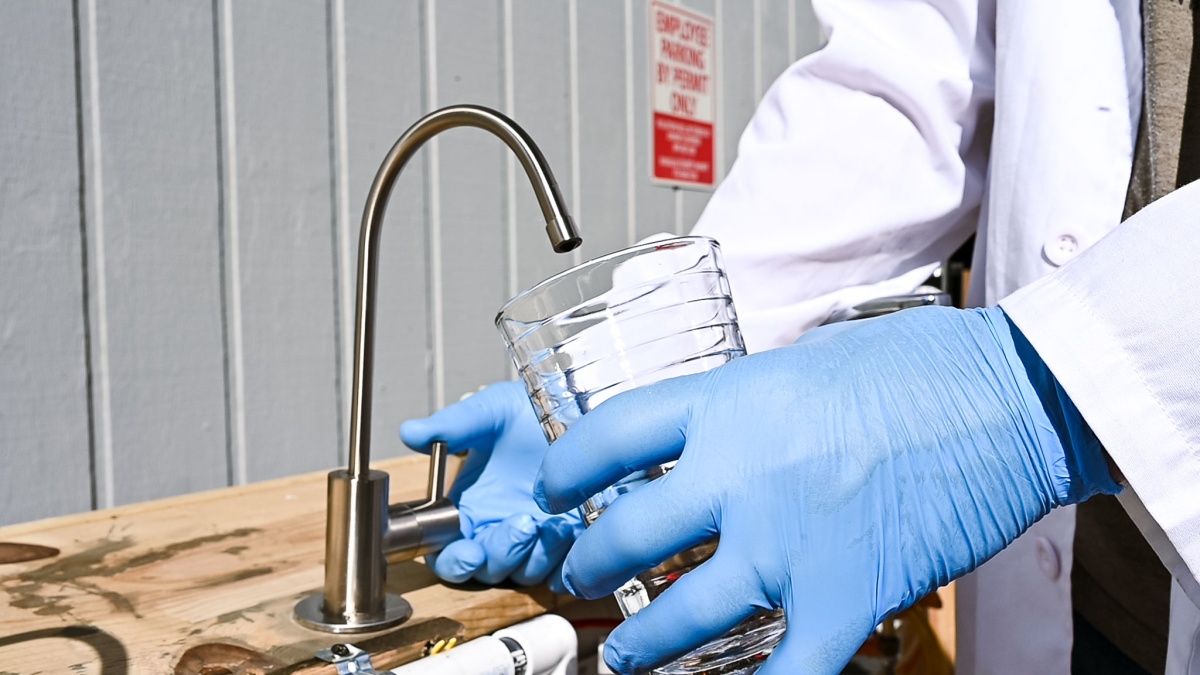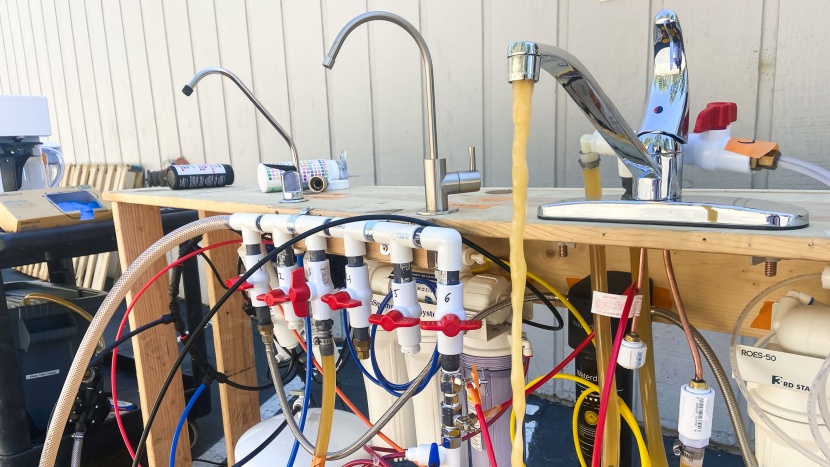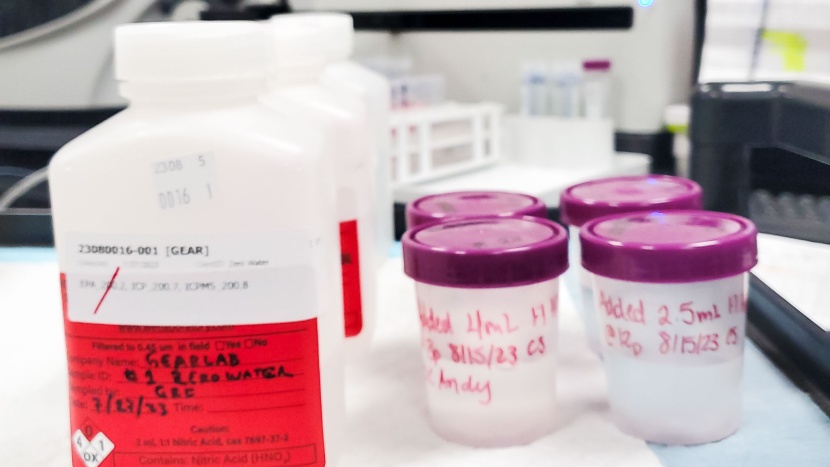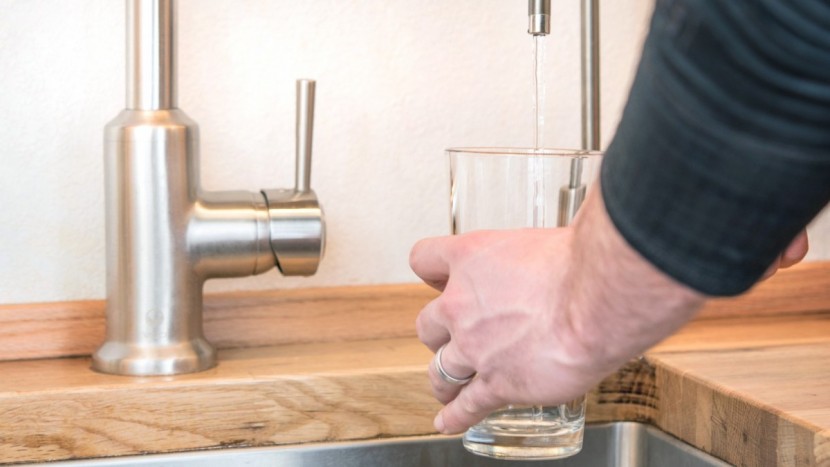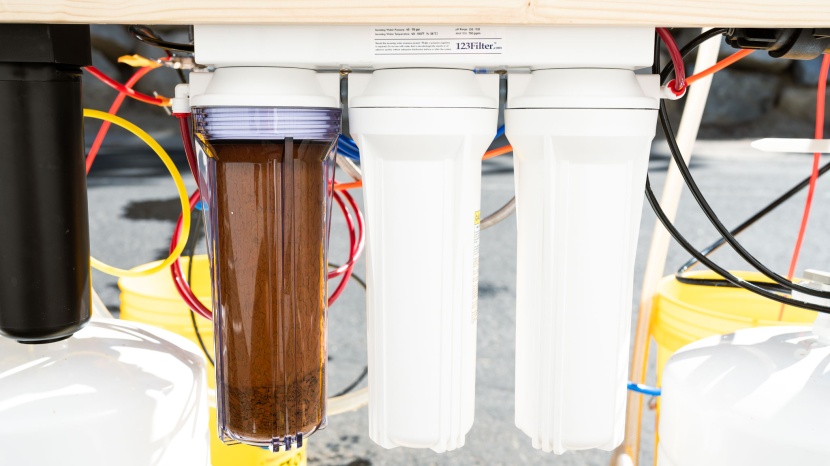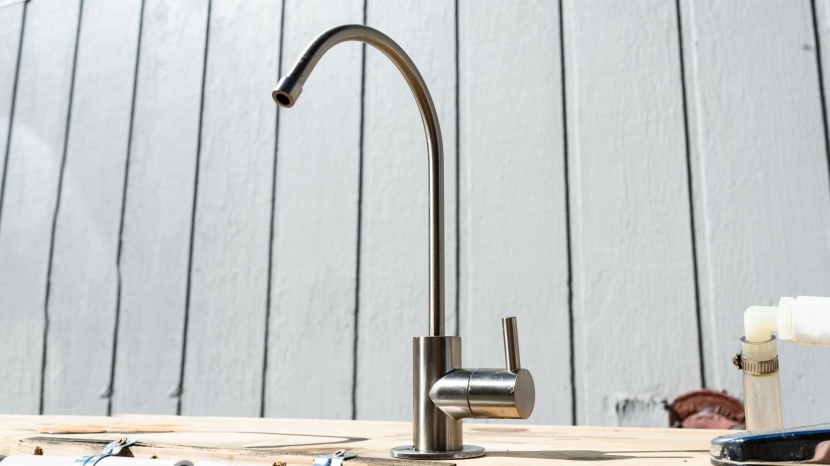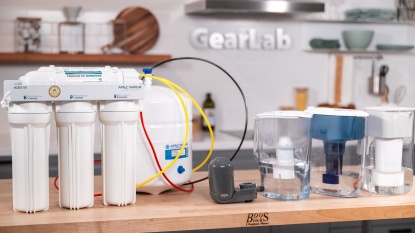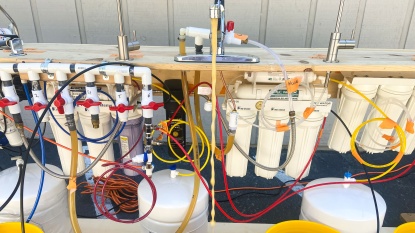
Our Verdict
Our Analysis and Test Results
The iSpring RCC7 is a popular reverse osmosis filter because it hits the sweet spot between superb filtration, overall taste, and simplified setup while still coming at an attractive price point. Despite being an overall simpler system, it is still one of the higher-capacity filters within our review and is rated for up to 75 gallons a day. For consumers looking for additional stages, the RCC7 is offered in a few different configurations, including UV or alkaline remineralization filters. This simple yet effective filter was the top performer in our review, removing almost all of the contaminants we placed during testing.
Performance Comparison
Contaminant Removal
Water filters are becoming essential household items across the country. Unless your water comes from a pristine alpine lake surrounded by snowcapped peaks, erosion-resistant granite, and environmental regulations, you likely want a water filter. Not every tap source is considered safe, and many are far from delicious. To determine the water filters that work best, we carried out a study with a water sample that contained high amounts of chlorine, iron, sulfate, lead, fluoride, and copper. We ran the contaminated water through each of the filters and sent a sample to Western Environmental Testing Laboratories, an independent water quality facility, to assess the filtered water. Through this process, we found that the iSpring RCC7 was one of the most effective filters within our review as it removed the majority of contaminants from the sample.
The iSpring water filter showcased its exceptional performance by eradicating 100% of the chlorine (12mg/l out of 12mg/l) from the water sample. Typically used as a disinfectant, chlorine can adversely affect the water's taste and aroma. The filter also successfully eliminated 100% of the fluoride (10mg/l out of 10mg/l) in the water.
Continuing its impressive performance streak, the iSpring effectively purged 100% of the copper (52 mg/l out of 52 mg/l) from the water. High levels of copper can trigger gastrointestinal discomfort and may even cause liver or kidney damage over time. It also completely erased 100% of the lead content (.02 mg/l out of .02 mg/l), a toxic metal that threatens human health even at very minimal exposure levels.
The iSpring managed to eliminate 99.88% of sulfates (2297.3 mg/l out of 2300 mg/l). High sulfate concentrations in water can potentially cause diarrhea, and can also produce a generally unpleasant odor and taste. In addition, the model also removed 99.91% of iron (629.42 mg/l out of 630 mg/l). While iron is a necessary nutrient, its excess in water can lead to a metallic taste and can stain faucets. Notably, the sample originally had 3004.2 mg/l of combined contaminant, and the filtered sample possessed a mere 3.28 mg/l, a highly impressive figure, and one of the best success rates in our review.
Taste
Nothing beats the refreshing taste of cold, clear, and clean water. Under-sink water filters like the iSpring RCC7 provide delicious and clean water straight from your tap without having to fill and refill a pitcher. We know that taste can be subjective, so we conducted a blind taste test with multiple members of our team, asking them to rank and describe the taste of water filtered by each unit. We used filtered water from a garden hose for these samples. In these tests, the water from the iSpring was widely liked by our team, and most individuals rated it above average with a neutral, crisp, odorless nature.
The taste of water purified by the iSpring RCC7 is similar to that of bottled water with low mineral content. For those who prefer the taste of mineral water, the iSpring offers the RCC7AK, which includes an alkaline remineralization stage to add minerals back to the drinking water. The RCC7 filter provides near-bottled water quality to your kitchen. Altogether, the system improves the drinking water experience and removes or reduces metallic and chemical tastes from most water sources.
Setup and Maintenance
Our evaluation of setup and maintenance is divided into two main parts. First, we assess the difficulty of the initial installation and setup process, and then factor in the required maintenance, the wastewater ratio, and calculate the annual cost. To help you find the best water filter for your long-term needs, we took the time to install each filter in our standardized test kitchen and made sure to filter plenty of water during our testing period. We conducted standard maintenance and calculated the waste water ratios observed in our testing. We found that the iSpring has a standard installation and maintenance process for an undersink model; one that we think most people will be able to DIY. It also has a low annual cost and competitive efficiency.
Reverse osmosis filters generally have a more elaborate and space-intensive setup than standard types because of the extra faucet and sink. However, the iSpring is designed with DIY installation in mind. It comes with easy-to-follow instructions and also has a well-done YouTube video to support the process. If you have any sort of experience with home DIY projects, you should be able to tackle the installation in a couple of hours. The most challenging and intimidating part of the installation process of any reverse osmosis filter is the additional faucet. If your counter doesn't already have a hole reserved for a water filter, you may have to drill one. If the process seems beyond your comfort zone, a plumber can make quick work of the installation. The setup process is similar to that of other filters as it requires the tank to be filled and emptied until no sediment comes out. This generally takes one to three rounds to accomplish.
The maintenance of the iSpring is to change filters according to the following schedule: stage 1-3 filters every six months, Reverse osmosis every 2-3 years, and the carbon filter every 12 months. The process is comparable to other systems in terms of difficulty and requires a C-spanner wrench. Some of the filters on this model use a filter and casing design. For these filters, unscrew the casing and then replace the internal filter and “O” ring to screw it back into place. While this takes longer than the full replacement filters, it remains a quick process relative to a system with multiple filter changes.
Operating Costs
The lower cost of filters makes this model one of the most affordable reverse osmosis systems annually at just $50. The design and filters help improve the overall efficiency of this model as two gallons of wastewater are processed into one gallon of drinking water. The average filter discharges two to three gallons of wastewater per gallon of fresh drinking water, while the most efficient systems are closer to 1:1. The manufacturer recommends routing the remnant wastewater into a different vessel for nonpotable uses.
Should You Buy the iSpring RCC7?
The iSpring RCC7 stood up to the competition with incredible filtration performance, taste, and user experience. Our testing proved this model to be a best-in-class filter for those seeking a reverse osmosis filter.
What Other Water Filter Should You Consider?
If you want an even more efficient filter, check out the Home Master HydroPerfection. It produces drinking water at a 1:1 ratio. However, if you're looking for a countertop reverse osmosis filter system, see the Bluevua RO100ROPOT.


